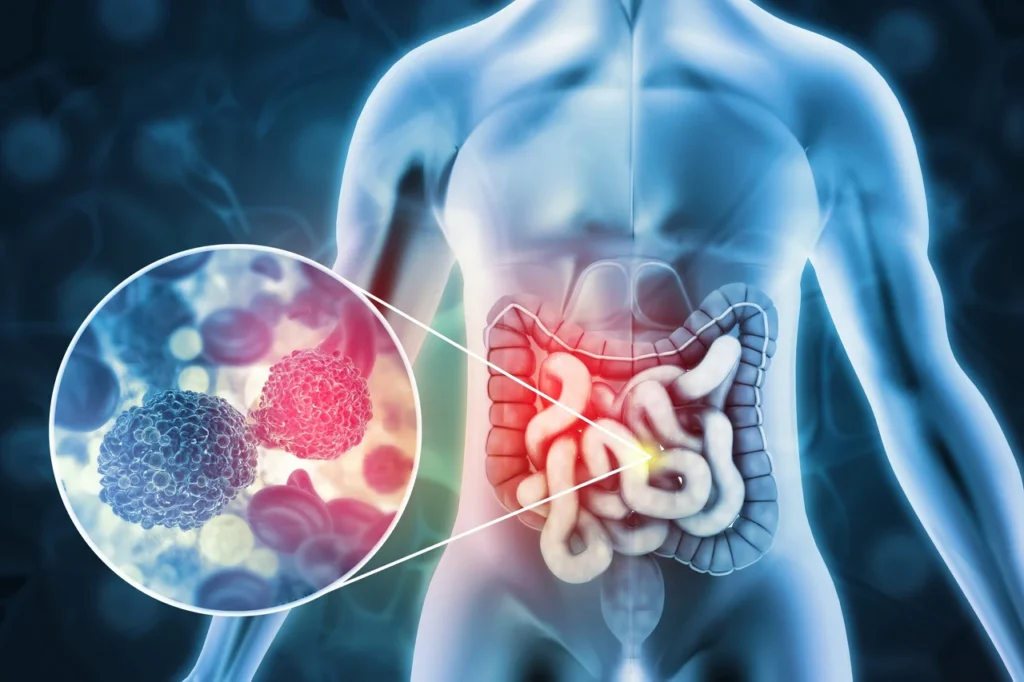Colon cancer can develop for a variety of reasons, including environmental, lifestyle, and genetic factors. Among these, family history may play a significant role in determining a person’s likelihood of developing the condition. Understanding how hereditary traits influence the disease can help individuals be more informed about potential risks and proactive in their healthcare choices.
What Is Colon Cancer?
Colon cancer, also known as colorectal cancer, is a type of cancer that begins in the colon or rectum. The colon is the final part of the digestive system, where the body absorbs water and processes waste. Like other cancers, colorectal cancer occurs when cells in the colon grow abnormally, forming tumors. These tumors can vary, with some remaining non-cancerous and others becoming malignant. While anyone can develop colorectal cancer, factors such as age, diet, pre-existing health conditions, and family history can increase risks.
How Does Family History Influence Risk?
Family history refers to the shared genetic background of individuals within the same family. Parents, siblings, or grandparents who have been diagnosed with colon cancer may indicate the presence of genetic traits that increase susceptibility. These traits may include inherited genetic mutations such as Lynch syndrome or familial adenomatous polyposis (FAP), both of which can raise the likelihood of developing cancer over a lifetime.
The potential connection between inherited mutations and colorectal cancer risk arises because these mutations affect gene functions that regulate cell growth and repair. When these mechanisms are disrupted, abnormal cell growth can lead to tumors. Individuals with a significant family history of colorectal cancer may benefit from consulting healthcare providers about their genetic risks.
Genetic Syndromes Associated with Colon Cancer
While sporadic instances of colon cancer are common, genetic syndromes may account for some cases. Two syndromes often discussed in research are:
- Lynch Syndrome: involves mutations in DNA mismatch repair genes. The damaged repair process leads to higher chances of cancer in the colon and other organs.
- Familial Adenomatous Polyposis (FAP): causes the development of numerous polyps in the colon and rectum during adolescence or early adulthood. Left untreated, these polyps often become cancerous.
Screening and Monitoring for Cancer
Recognizing the link between family history and colon cancer can present opportunities for early intervention. Regular screening methods, such as colonoscopies, play a key role in identifying abnormalities before they progress. These tests may be recommended for those with direct relatives diagnosed with cancer or who are known carriers of related genetic mutations.
Healthcare providers may recommend more frequent screenings or additional diagnostic tests for individuals in high-risk categories. Genetic counseling can also provide tailored guidance, helping people understand test results and decide next steps. Screening not only identifies existing issues but also detects polyps, allowing removal before the cells turn malignant.
Lifestyle Considerations for Risk Management
Although genetic predispositions cannot be altered, individuals may still have opportunities to lower risks through lifestyle changes. Maintaining a diet that includes fiber-rich foods, fresh fruits, and vegetables supports digestive health. Limiting red and processed meats, reducing alcohol consumption, and avoiding tobacco can also help mitigate associated risks. Exercise is another factor that contributes positively to overall health and may play a role in lowering the likelihood of developing colon cancer. Staying active aids in weight management and supports bodily functions that contribute to healthy cell growth.
Take the Next Step
The connection between colon cancer and family history emphasizes the value of understanding your genetic background. While family history alone does not mean a guaranteed diagnosis, it reminds individuals of the importance of staying informed and taking preventive actions. If cancer runs in your family, start by gathering information about your relatives’ medical history and discussing it with your healthcare provider.


